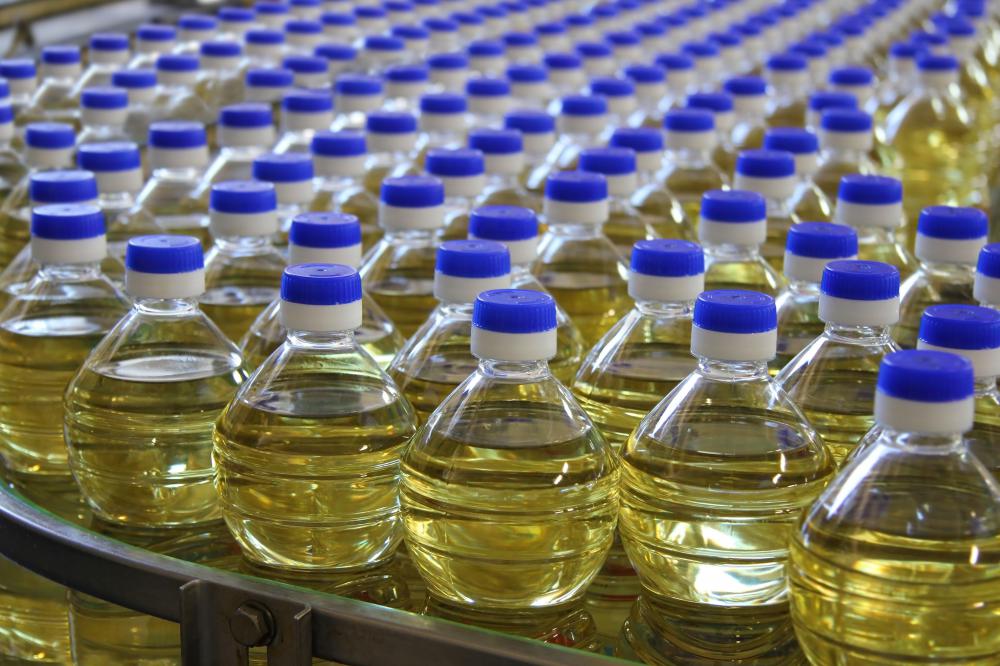At SmartCapitalMind, we're committed to delivering accurate, trustworthy information. Our expert-authored content is rigorously fact-checked and sourced from credible authorities. Discover how we uphold the highest standards in providing you with reliable knowledge.
What is Repetitive Manufacturing?
Repetitive manufacturing is a form of mass production that relies on making high numbers of identical units in a continuous flow. This type of manufacturing is suited for a number of applications and is used in factories all over the world. Many companies specialize in developing equipment and techniques designed for such production processes.
This approach to manufacturing is suited to the manufacturing of products with a continuous and fairly steady demand, such as medical supplies, food products, and appliances. The company can keep up a continuous rate in confidence that there will be a market for products as they roll off the line. In special circumstances, manufacturing can be increased or decreased to adjust to changing market conditions, but in general, this type of manufacturing is very fast and highly efficient.

Dedicating a manufacturing line to the production of one product minimizes setup time and streamlines the process. Repetitive manufacturing can also be used within the context of a larger assembly line. A car manufacturer, for example, can repetitively manufacture parts used across a whole family of vehicles for insertion into assembly lines for different cars. This technique can also be used to package products that are shipped in packages of the same size and shape.

Companies can produce continuously and more or less infinitely, or a line can be set up to produce a large run of a specific product. Companies that produce compact discs, digital video discs, and similar products are a good example. The core of the manufacturing line stays the same and specifications are changed for different products as needed. Repetitive manufacturing allows the company to easily return to a prior product run if it needs to produce more to order.

Repetitive manufacturing can be used by a specific company to produce its own products or by a company that contracts to produce products for different companies and people. Using production lines managed by other firms can cut production costs, especially for small companies, by providing them with access to highly efficient and modern equipment that would be too expensive for a single small company to buy and maintain.

Such assembly lines are often highly automated. The equipment may be entirely electronic and controlled by robots, keeping workers off the floor entirely. Sometimes, basic quality control on the manufacturing line is also handled by robots that are able to identify flaws in the products as they move past. Automation has improved safety and efficiency in manufacturing by eliminating human error and keeping people out of danger, but it has also been criticized as a source of job loss.
AS FEATURED ON:
AS FEATURED ON:















Discussion Comments
Everyone in a manufacturing facility has a specialized job to do. One department handles the construction of one part of the item, and another department is in charge of another part. This keeps the manufacturing flow at its maximum capacity.
@shell4life – It does get tedious, but many factory workers make great wages. I make more than my husband does at his desk job, and he's been there for six years!
Of course, there are drawbacks. I can only take my vacation during the weeks when the factory closes for Christmas and Independence Day. If I need lots of time off for being sick, I run the risk of getting fired.
I live in an area where manufacturing jobs are plentiful. I would say that at least seven out of every ten people I meet are employed at factories.
All of these factories do repetitive manufacturing. Some of my family members work on assembly lines, while others sew materials all day.
I've never worked at a factory, but it seems that the job would get very tedious and boring. I don't know if I could keep my sanity while doing the same thing over and over again.
Post your comments